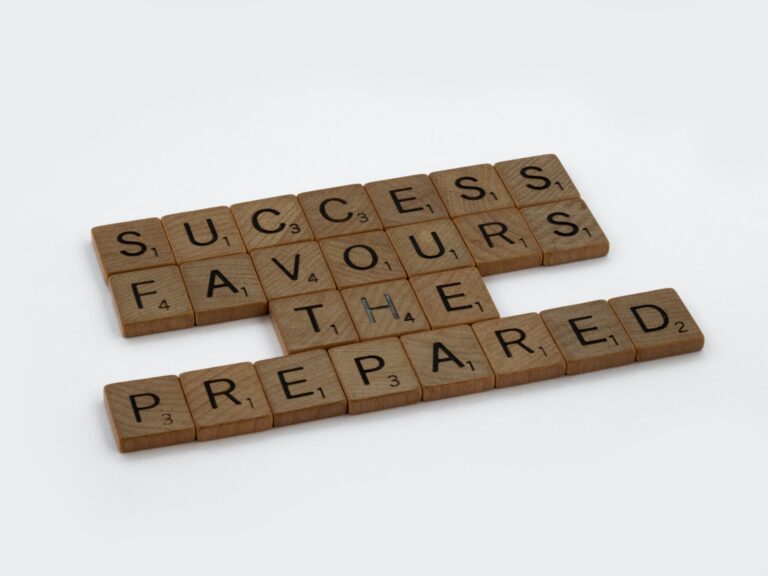Decisions: The Art of Embracing Growth, Collaboration, and Transformation
Navigating the Crossroads: The Power and Paradox of Decision-Making
Life is a series of choices. From the mundane decisions of what to wear or what to eat for dinner, to the weightier dilemmas of career paths and where to establish our roots, our lives are shaped by the countless decisions we make each day. Choices not only determine the specifics of our experiences but also provide the framework for the trajectory of our lives. Yet, amidst the sea of possibilities, the abundance of options can be both a blessing and a curse.
The allure of endless possibilities may sound exhilarating, but it can also lead to the paralysis of indecision. We find ourselves caught in a web of uncertainty, fearing the consequences of making the wrong choice. The fear of making mistakes can prevent us from fully embracing the present moment or moving forward in any direction. However, it is important to remember that the only truly “wrong” decision we can make is the one that we don’t feel in control of.
When we have agency in the decision-making process and approach it with thoughtful care, no choice is ever truly a mistake. Each decision, whether big or small, holds the potential for growth, learning, and transformation. It is through the act of making choices that we shape our lives and define who we are.
While some decisions may seem trivial, like choosing between red or blue socks, they still contribute to the fabric of our daily lives. They may reflect our personal preferences, influence our mood, or even spark conversations with others. By embracing these small decisions, we exercise our autonomy and express our individuality in the simplest of ways.
On the other hand, there are decisions that carry more weight, decisions that shape the trajectory of our careers, relationships, and personal fulfillment. These decisions can be intimidating and overwhelming, but they also hold immense power. They have the potential to lead us towards our dreams, create lasting impact, and bring us closer to a life aligned with our values and aspirations.
In the midst of the decision-making process, it is crucial to cultivate self-awareness and intuition. By engaging in introspection, we gain insight into our desires, values, and motivations. This self-reflection allows us to discern our truest aspirations, enabling us to make decisions that are authentic and aligned with who we are.
Intuition, often overlooked in a world that prioritizes logic and analysis, can be a valuable tool in decision-making. It taps into our subconscious wisdom, guiding us towards choices that resonate on a deeper level. Balancing intuition with rational thinking can lead to decisions that honor both our instincts and our logical considerations, creating a harmonious blend of heart and mind.
Moreover, the power of decision-making can be amplified when we involve others in the process. Collaborative decision-making opens doors to diverse perspectives and alternative insights. When we seek advice from trusted mentors, experts, or collaborate with peers and colleagues, we tap into a collective wisdom that surpasses our individual limitations. The wisdom of the collective enhances problem-solving, sparks creativity, and brings forth innovative solutions that we may not have discovered on our own.
By involving stakeholders who are affected by our decisions, we foster a sense of shared ownership and commitment. This not only strengthens the decision but also generates a support network to navigate challenges and overcome obstacles along the way. The synergy of collaboration empowers us to make more informed and well-rounded decisions, amplifying the positive impact they can have on our lives and the lives of those around us.
In the following sections, we will explore the art of decision-making with thoughtful care. We will delve into strategies for gathering information, evaluating risks and rewards, and setting decision-making criteria. We will also examine the importance of accepting the consequences of our choices, taking responsibility, and embracing the lessons they offer. Through this exploration, we aim to inspire you to approach decisions with a sense of empowerment, self-awareness, and collaboration, ultimately guiding you towards a life that is shaped by conscious and meaningful choices.
The Nature of Decisions
Differentiating between small and big decisions
In our daily lives, we encounter a myriad of decisions, ranging from trivial choices to life-altering ones. It is important to recognize the distinction between small and big decisions, as they have varying degrees of impact and long-term consequences.
Small decisions are the ones we make frequently, often without much thought or deliberation. They encompass choices such as what to wear, what to eat, or which route to take to work. While seemingly insignificant, these small decisions contribute to the rhythm of our lives and reflect our personal preferences and routines. They may not hold the weight of significant consequences, but they still shape our experiences and influence our daily interactions.
On the other hand, big decisions are the ones that shape the trajectory of our lives. They have far-reaching implications and require deeper consideration and reflection. These decisions encompass aspects such as choosing a career path, starting a family, or relocating to a new city. Big decisions often involve taking risks, stepping out of our comfort zones, and committing to a course of action that may significantly alter our future. They require a careful evaluation of our values, aspirations, and long-term goals.
Examples of small decisions and their impact on daily life
Small decisions may seem inconsequential, but they can have a significant impact on our well-being and overall satisfaction. For example, the choice of what to wear can influence our confidence and mood throughout the day. A well-chosen outfit can make us feel empowered and ready to take on challenges, while an outfit that doesn’t align with our personal style may leave us feeling uneasy and self-conscious.
Similarly, decisions about what to eat can affect our energy levels, physical health, and mental clarity. Opting for a balanced, nutritious meal can provide the fuel we need to perform at our best, whereas consistently making unhealthy choices may lead to sluggishness and a decline in overall well-being.
Even seemingly trivial decisions like choosing a specific route during our commute can impact our daily experiences. Taking a scenic route may provide a sense of serenity and appreciation for the surroundings, while a shorter but more congested route may lead to frustration and stress. These small decisions, when consciously made, contribute to the quality of our daily lives.
Examples of big decisions and their long-term consequences
Big decisions, on the other hand, have a profound and lasting impact on the course of our lives. Choosing a career path, for instance, determines the majority of our waking hours and influences our financial stability, personal fulfillment, and opportunities for growth. Deciding on a career that aligns with our passions and values can lead to a sense of purpose and satisfaction, while settling for a career that does not resonate with our authentic selves may lead to long-term dissatisfaction and regret.
Another significant decision is choosing a life partner or deciding to start a family. These choices shape our personal relationships and the dynamics of our daily lives. The decision to commit to a life partner and build a family can bring immense joy, love, and support, while the decision to remain single or not have children may offer freedom, independence, and the ability to focus on personal aspirations. Each path holds its own rewards and challenges, and the consequences of these decisions ripple throughout our lives.
Furthermore, decisions regarding where to live and establish roots can have a profound impact on our sense of belonging, community, and opportunities for personal and professional growth. Choosing a place to settle down involves factors such as climate, culture, career prospects, and social support systems. The decision to relocate to a new city or country can broaden our horizons, expose us to new experiences, and offer fresh perspectives, while staying in our hometown may provide stability, familiarity, and a strong support network.
By understanding the nature of decisions and their varying degrees of impact, we gain a deeper appreciation for the role they play in shaping our lives. Small decisions may seem insignificant in isolation, but collectively, they contribute to the fabric of our daily experiences. Big decisions, on the other hand, hold the power to transform our lives in significant ways, guiding us along different paths and opening doors to new possibilities.
It is essential to approach both small and big decisions with intention and mindfulness. By recognizing the potential impact of our choices, we can cultivate a sense of agency and take ownership of the direction our lives are heading. Even the seemingly mundane decisions can be infused with purpose and conscious awareness, allowing us to make choices that align with our values and aspirations.
Moreover, big decisions require a more deliberative approach. They demand introspection, self-reflection, and a consideration of the long-term consequences. It is crucial to evaluate our passions, strengths, and goals when making significant life choices. Taking the time to explore different options, gather information, and seek advice from trusted mentors or experts can provide valuable insights and clarity.
One aspect to keep in mind is that decision-making is not a linear process. It is often iterative, requiring us to navigate through uncertainties, reassess our priorities, and adapt to changing circumstances. The decisions we make are not set in stone, and we have the capacity to recalibrate our course as we gain new experiences and insights.
It is also important to acknowledge that decisions are not made in isolation. Our choices impact not only ourselves but also those around us. By considering the perspectives and needs of others, we can make more informed decisions that foster collaboration, empathy, and mutual support. Seeking input from stakeholders who are affected by our choices, such as family members, friends, or colleagues, can provide a broader perspective and help us avoid potential blind spots.
Ultimately, the nature of decisions lies in their transformative power. Each choice, whether big or small, shapes our experiences, influences our growth, and defines the path we traverse. While the magnitude of the consequences may differ, the process of decision-making itself is an opportunity for self-discovery, learning, and personal development.
In the following sections of this article, we will explore practical strategies and insights to approach decision-making with thoughtful care. We will delve into the power of self-awareness, the value of intuition, and the benefits of collaborative decision-making. Additionally, we will examine how gathering information, evaluating risks and rewards, and setting decision-making criteria can enhance the quality of our choices.
By embracing the inherent power of decision-making and approaching it with mindfulness and agency, we can navigate the complexities of life with confidence, create meaningful experiences, and craft a future that resonates with our deepest aspirations.
Embracing Decision-Making as an Opportunity
Overcoming decision paralysis through mindset shifts
The abundance of choices in today’s world can sometimes lead to decision paralysis. We find ourselves overwhelmed by the array of options, fearing the consequences of making the wrong choice. However, by embracing decision-making as an opportunity for growth and learning, we can overcome this paralysis and approach choices with greater confidence and clarity.
-
Accepting imperfection and uncertainty: It is important to recognize that there is no such thing as a perfect decision. Life is inherently unpredictable, and outcomes can never be guaranteed. Embracing the imperfections and uncertainties allows us to release the pressure of making the “right” choice and instead focus on making a decision that aligns with our values, goals, and intuition.
-
Recognizing the growth potential in decision-making: Every decision we make, regardless of the outcome, provides an opportunity for personal growth and development. Even if a decision leads to an unexpected or undesirable outcome, we can learn from the experience, gain insights about ourselves and our preferences, and refine our decision-making process for future choices.
-
Embracing the learning opportunities from both good and bad decisions: Good decisions reinforce our confidence and provide positive outcomes, while bad decisions offer valuable lessons and opportunities for course correction. By reframing our perspective and embracing the learning that comes from both successes and failures, we can grow and evolve as decision-makers.
Cultivating self-awareness and intuition
Self-awareness is a crucial aspect of effective decision-making. By understanding our values, strengths, weaknesses, and desires, we can make choices that align with our authentic selves. Additionally, tapping into our intuition can provide valuable insights and guidance when faced with complex decisions.
-
The role of self-reflection in decision-making: Taking the time for self-reflection allows us to gain a deeper understanding of our needs, aspirations, and motivations. It involves introspection, asking ourselves meaningful questions, and listening to our inner voice. By connecting with our inner wisdom, we can make decisions that are true to ourselves and reflect our unique path.
-
Developing intuition as a valuable decision-making tool: Intuition is an innate sense of knowing that arises from a combination of past experiences, knowledge, and unconscious processing. It can provide valuable guidance when faced with uncertainty or when logical analysis falls short. Cultivating our intuition involves quieting the noise around us, trusting our instincts, and honing our ability to listen to the subtle cues and messages that arise within us.
-
Balancing intuition with rational thinking: While intuition is a powerful tool, it is important to strike a balance between intuition and rational thinking. By combining intuitive insights with logical analysis, we can make well-rounded decisions that consider both our inner knowing and external factors. This integration allows us to leverage the wisdom of our intuition while also considering the practical implications of our choices.
By cultivating self-awareness and tapping into our intuition, we can make decisions that are authentic, aligned with our values, and resonate on a deep level. These decisions are more likely to lead to a sense of fulfillment and purpose.
The power of shared decision-making
While individual autonomy is important, involving others in the decision-making process can enhance the quality of our choices. Collaborative decision-making brings together diverse perspectives, fosters creativity, and strengthens our commitment to the chosen path.
-
Benefits of involving others in decision-making: When we involve others, we gain access to a wide range of perspectives, insights, and expertise. This diversity of viewpoints can challenge our assumptions, expand our thinking, and help us consider factors that we may have overlooked. Collaborative decision-making also promotes a sense of inclusivity and shared ownership, which can increase the commitment and engagement of those involved.
-
Seeking advice from trusted mentors and experts: Seeking guidance from mentors or subject matter experts can provide valuable insights and knowledge. These individuals may have experienced similar situations or possess specialized knowledge that can inform our decision-making process. Their wisdom and expertise can help us consider different angles and make more informed choices.
-
Collaborating with peers and colleagues: Involving peers and colleagues in decision-making can foster a sense of camaraderie and teamwork. By engaging in open and respectful dialogue, we can draw upon the collective intelligence and creativity of the group. This collaboration not only leads to better decisions but also cultivates a culture of shared responsibility and mutual support.
Incorporating the input and perspectives of others can enrich our decision-making process and lead to more well-rounded, informed choices. By embracing the power of shared decision-making, we expand our horizons, tap into collective wisdom, and create a supportive network that can guide us through the complexities of decision-making.
Embracing decision-making as an opportunity allows us to overcome the paralysis of indecision and approach choices with intention, self-awareness, and collaboration. By shifting our mindset, cultivating self-awareness, and involving others, we can make decisions that align with our values, promote personal growth, and lead us towards a more fulfilling and purposeful life. Decision-making is a skill that can be honed, and with practice and reflection, we can become more confident, proactive, and empowered decision-makers.
Approaching Decision-Making with Thoughtful Care
Gathering information and conducting research
When faced with significant decisions, it is crucial to gather relevant information and conduct thorough research. The more informed we are about the options and potential outcomes, the better equipped we are to make sound choices.
-
Identifying reliable sources: It is important to seek information from credible and trustworthy sources. This could include research articles, books, reputable websites, or subject matter experts. By accessing reliable information, we can gain a comprehensive understanding of the factors at play and make more informed decisions.
-
Conducting thorough research: Take the time to explore different perspectives, gather data, and analyze relevant information. This may involve conducting interviews, reviewing case studies, or examining historical data. By immersing ourselves in the subject matter, we can make decisions based on a solid foundation of knowledge.
-
Considering potential biases: It is important to be aware of our own biases and the potential biases in the information we encounter. By seeking a balanced perspective and critically evaluating the information, we can make decisions that are more objective and well-rounded.
Evaluating potential risks and rewards
Every decision comes with its own set of risks and rewards. It is essential to assess and evaluate these factors to make informed choices that align with our risk tolerance and long-term goals.
-
Identifying potential risks: Consider the potential negative outcomes or challenges associated with each option. Assess the likelihood and impact of these risks on your life, goals, and well-being. By understanding the risks, you can take proactive measures to mitigate them or develop contingency plans.
-
Weighing potential rewards: Explore the potential positive outcomes and rewards that each option presents. Consider how each choice aligns with your values, aspirations, and desired outcomes. By assessing the potential rewards, you can prioritize choices that offer the greatest alignment and fulfillment.
-
Balancing short-term gains with long-term consequences: While short-term gains may be enticing, it is important to consider the long-term consequences of our decisions. Reflect on the potential impact on your personal growth, relationships, and overall well-being. By taking a holistic view, you can make choices that align with your long-term vision and values.
Setting decision-making criteria and priorities
Establishing decision-making criteria and priorities can provide a framework for evaluating options and making choices that align with your values and goals.
-
Defining decision-making criteria: Identify the key factors that matter most to you in the decision-making process. This may include factors such as personal values, financial considerations, career aspirations, or the impact on relationships. By clarifying your criteria, you can assess each option against these criteria to determine the best fit.
-
Prioritizing your values and goals: Reflect on your core values and long-term goals. Consider how each option aligns with these values and goals. By prioritizing what truly matters to you, you can make decisions that reflect your authentic self and contribute to your overall sense of fulfillment.
-
Seeking alignment and balance: Strive for decisions that achieve a balance between different priorities and values. It may not always be possible to satisfy every criterion perfectly, but seeking alignment and balance can lead to choices that honor your values while addressing important considerations.
Weighing short-term gains against long-term consequences
When making decisions, it is essential to consider the trade-offs between short-term gains and long-term consequences. While immediate benefits may be enticing, they should be evaluated within the context of your broader life goals and aspirations.
-
Assessing short-term gains: Consider the immediate benefits or gratification that each option offers. Evaluate how these short-term gains align with your immediate needs and desires.
-
Evaluating long-term consequences: Reflect on the potential long-term impact of each option. Consider how each choice may influence your future opportunities, personal growth, and overall well-being.
-
Striking a balance: Strive for decisions that balance short-term gratification with long-term alignment. Seek choices that provide immediate benefits while also contributing positively to your long-term goals and fulfillment.
By approaching decision-making with thoughtful care, we empower ourselves to make choices that are grounded in knowledge, aligned with our values, and mindful of both short-term gains and long-term consequences. Each decision becomes an opportunity for growth, learning, and progress towards a life that reflects our truest aspirations.
Accepting the Consequences
Understanding that decisions shape our experiences
Decisions, whether big or small, have a profound impact on the experiences we have in life. Each choice sets us on a particular path, influencing the opportunities we encounter, the relationships we build, and the challenges we face. By acknowledging the power of decisions, we can take ownership of the outcomes and navigate our lives with a sense of purpose and intention.
-
Embracing responsibility: Accepting that we are responsible for the choices we make allows us to recognize our agency and take control of our lives. It empowers us to move away from a victim mentality and instead embrace the power we have to shape our own destiny.
-
Embracing the power of choice: Realizing that we have the power to choose empowers us to be proactive and intentional in our decision-making. We become active participants in our lives, rather than passive bystanders, allowing us to create a life that aligns with our values and aspirations.
Embracing responsibility and learning from the outcomes
Every decision we make carries the potential for both positive and negative outcomes. It is important to embrace the consequences of our choices and approach them as opportunities for growth, learning, and personal development.
-
Learning from successes: When a decision leads to a positive outcome, we can celebrate our success and use it as a source of motivation and inspiration. By reflecting on what went well, we can identify the factors that contributed to the positive outcome and replicate them in future decision-making.
-
Learning from failures: When a decision leads to an unfavorable outcome, it is crucial to embrace it as a valuable learning experience. Failure provides us with insights into what didn’t work and helps us refine our decision-making process. It offers an opportunity to reassess our priorities, adjust our strategies, and develop resilience.
-
Cultivating a growth mindset: Adopting a growth mindset allows us to view setbacks as opportunities for growth rather than as indicators of personal failure. By reframing failures as stepping stones on our journey, we can learn from them, adapt, and approach future decisions with greater wisdom and resilience.
The potential for course correction and adaptation
Life is dynamic, and circumstances change over time. It is essential to recognize that decisions are not set in stone and that we have the ability to course-correct and adapt as needed.
-
Being open to reassessment: Periodically reassessing our decisions allows us to evaluate their ongoing alignment with our values, goals, and evolving circumstances. It is important to be open to the possibility of making adjustments or even revising our decisions when necessary.
-
Embracing flexibility: The ability to adapt and embrace flexibility in our decision-making is crucial. Sometimes, unforeseen circumstances or new information may require us to pivot or make adjustments to our chosen path. By remaining open-minded and adaptable, we can navigate changes with resilience and make decisions that better serve us in the long run.
-
Seeking support and feedback: It can be beneficial to seek support from trusted individuals, such as mentors, friends, or professionals, during times of reassessment or course correction. Their insights and perspectives can provide valuable guidance and support as we navigate the complexities of adjusting our decisions.
By accepting the consequences of our decisions, learning from the outcomes, and embracing the potential for course correction, we cultivate a mindset of growth, resilience, and adaptability. This allows us to navigate the ever-changing landscape of life with confidence and purpose, making decisions that align with our evolving aspirations and priorities.
Decision-making is an intricate and transformative process. By embracing the consequences of our choices, accepting responsibility, and learning from both successes and failures, we can grow as individuals and shape a life that reflects our truest selves. Furthermore, recognizing the potential for course correction and adaptation enables us to navigate the twists and turns of life with resilience and flexibility. Through thoughtful and intentional decision-making, we embark on a journey of self-discovery, growth, and fulfillment.
Embracing the Learning Opportunities
Understanding that decisions shape our experiences
Decisions, whether big or small, have a profound impact on the experiences we have in life. Each choice sets us on a particular path, influencing the opportunities we encounter, the relationships we build, and the challenges we face. By acknowledging the power of decisions, we can take ownership of the outcomes and navigate our lives with a sense of purpose and intention.
-
Embracing responsibility: Accepting that we are responsible for the choices we make allows us to recognize our agency and take control of our lives. It empowers us to move away from a victim mentality and instead embrace the power we have to shape our own destiny.
-
Embracing the power of choice: Realizing that we have the power to choose empowers us to be proactive and intentional in our decision-making. We become active participants in our lives, rather than passive bystanders, allowing us to create a life that aligns with our values and aspirations.
Learning from successes and failures
Every decision we make carries the potential for both positive and negative outcomes. It is important to embrace the consequences of our choices and approach them as opportunities for growth, learning, and personal development.
-
Learning from successes: When a decision leads to a positive outcome, we can celebrate our success and use it as a source of motivation and inspiration. By reflecting on what went well, we can identify the factors that contributed to the positive outcome and replicate them in future decision-making. This reflection allows us to recognize our strengths, talents, and effective strategies, fostering a greater sense of self-awareness and confidence.
-
Learning from failures: When a decision leads to an unfavorable outcome, it is crucial to embrace it as a valuable learning experience. Failure provides us with insights into what didn’t work and helps us refine our decision-making process. It offers an opportunity to reassess our priorities, adjust our strategies, and develop resilience. By adopting a growth mindset, we see failure as a stepping stone toward improvement rather than a permanent setback.
-
Cultivating a growth mindset: Adopting a growth mindset allows us to view setbacks as opportunities for growth rather than as indicators of personal failure. By reframing failures as learning experiences, we can extract valuable lessons from them. This mindset enables us to recognize that failures are not defining moments but rather stepping stones on our journey toward success. With a growth mindset, we embrace challenges, persist through adversity, and continually evolve as decision-makers.
Incorporating feedback and reflection
In order to maximize the learning opportunities presented by our decisions, it is important to actively seek feedback and engage in self-reflection.
-
Seeking feedback: Seeking feedback from trusted mentors, colleagues, or loved ones can provide valuable insights and alternative perspectives. Constructive feedback helps us gain a deeper understanding of the impact and implications of our decisions. It also allows us to consider blind spots and areas for improvement, enhancing our decision-making abilities.
-
Engaging in self-reflection: Regular self-reflection is essential for personal growth and development. Taking the time to introspect and evaluate our decisions helps us gain insight into our values, motivations, and decision-making patterns. Through self-reflection, we can identify patterns of success and areas that require attention or adjustment. This self-awareness enables us to make more conscious and intentional decisions in the future.
-
Practicing continuous improvement: Embracing the learning opportunities provided by our decisions involves a commitment to continuous improvement. It means being open to feedback, reflecting on our experiences, and actively seeking ways to enhance our decision-making skills. By cultivating a growth mindset and an attitude of lifelong learning, we can continuously refine our decision-making abilities and make increasingly effective choices.
Applying lessons to future decisions
The true value of embracing the learning opportunities presented by our decisions lies in applying the insights gained to future choices.
-
Integrating lessons learned: Actively integrating the lessons learned from past decisions into our decision-making process is key to growth. By leveraging our experiences, successes, and failures, we can make more informed, confident, and effective choices. This integration helps us avoid repeating past mistakes and capitalize on our strengths and newfound wisdom.
-
Adjusting strategies: Applying the lessons learned from past decisions allows us to refine our decision-making strategies. We can identify areas where we need to adjust our approaches, consider different perspectives, and broaden our range of considerations. This adaptability and willingness to evolve contribute to our growth as decision-makers.
-
Embracing a growth mindset: Embracing a growth mindset is an ongoing process. It involves recognizing that every decision, regardless of its outcome, provides an opportunity for growth and learning. By maintaining an open and curious mindset, we remain receptive to new ideas, alternative viewpoints, and innovative approaches to decision-making.
By embracing the learning opportunities presented by our decisions, we foster personal and professional growth. Each choice becomes a stepping stone, guiding us toward greater self-awareness, resilience, and success. The cumulative lessons learned from our decision-making journey contribute not only to our individual development but also to our ability to positively impact the world around us.
Decision-making is a continual process of growth, learning, and self-discovery. By embracing responsibility, learning from successes and failures, incorporating feedback and reflection, and applying the lessons to future decisions, we can continually refine our decision-making skills and make choices that align with our values, aspirations, and overall sense of fulfillment. Embracing the learning opportunities embedded within decisions allows us to transform challenges into opportunities and evolve into more effective and insightful decision-makers.
Embracing the Journey: Shaping Lives Through Thoughtful Decisions
In the realm of decision-making, we have explored the multifaceted nature of choices, from small everyday decisions to life-altering ones. We have delved into the paradox of choice, the importance of feeling in control, and the value of collaborative decision-making. Throughout this journey, we have discovered that decision-making is not merely about making the “right” choice, but about embracing the process as an opportunity for growth, self-awareness, and transformation.
By recognizing that the only “wrong” decision is the one we don’t feel in control of, we free ourselves from the fear of making mistakes. We come to understand that decisions, regardless of their outcomes, are catalysts for learning, personal development, and the shaping of our experiences. In this understanding lies the power to approach decision-making with intention, thoughtfulness, and agency.
We have explored the significance of self-awareness and intuition in the decision-making process. By cultivating self-awareness, we gain insights into our values, desires, and aspirations, allowing us to make choices that align with our authentic selves. Embracing intuition as a valuable decision-making tool enables us to tap into our inner wisdom, guiding us toward choices that resonate on a deep level. Balancing intuition with rational thinking creates a holistic approach to decision-making, merging the wisdom of both heart and mind.
Moreover, we have seen the power of shared decision-making. By involving others in our decision-making process, we access diverse perspectives, alternative insights, and collaborative problem-solving. Seeking advice from mentors, collaborating with colleagues, and involving stakeholders affected by our choices enriches the decision-making process and strengthens the commitment to the chosen path. Collaboration not only broadens our thinking but also fosters a sense of collective ownership, support, and shared responsibility.
Approaching decision-making with thoughtful care entails gathering information, evaluating risks and rewards, and setting decision-making criteria. By conducting thorough research, we gain the knowledge necessary to make informed choices. Evaluating potential risks and rewards helps us weigh the potential outcomes and make decisions that align with our values and long-term goals. Setting decision-making criteria and priorities provides a framework for evaluating options and ensures that our choices align with our core values and aspirations.
Accepting the consequences of our decisions is crucial for growth and personal development. Recognizing that decisions shape our experiences empowers us to take responsibility for our choices and navigate life with purpose and intention. Embracing both successes and failures as learning opportunities enables us to extract valuable insights, refine our decision-making process, and develop resilience. It is through the acceptance of consequences that we learn to adapt, course-correct, and continually evolve as decision-makers.
In conclusion, decision-making is a journey that encompasses self-awareness, collaboration, and continuous learning. It is through thoughtful care and a growth mindset that we unlock the potential for personal and professional growth. Each decision, no matter how big or small, is an opportunity to shape our lives, explore our passions, and align ourselves with our truest aspirations. By embracing the inherent power of decision-making, we embark on a path of self-discovery, fulfillment, and the creation of a life that reflects who we truly are.
As we navigate the complex landscape of decisions, let us approach them with a sense of agency, curiosity, and gratitude. Let us embrace the lessons, embrace the growth, and embrace the beautiful tapestry of our lives, woven together by the choices we make.







